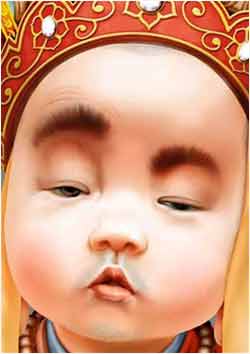Journey to the West

A brief introduction of some interest:
Journey to the West (Traditional: 西遊記; Simplified: 西游记; pinyin: Xī Yóu Jì; Wade-Giles: Hsi Yu Chi) is a classic of Chinese literature, and perhaps the most well-known classic amongst the younger generation. It was published anonymously in the 1590s, and no direct evidence of its authorship survives, but it is traditionally ascribed to the scholar Wu Cheng'en. The novel tells a fictionalized and mythologized version of the Buddhist monk Xuanzang's pilgrimage to India to fetch religious texts.
In the novel, the monk Xuanzang (玄奘) is called by the Bodhisattva Guan Yin to travel to India to obtain copies of certain important Buddhist Sutras that are not available in China. He is accompanied on his journey by three disciples - the monkey king Sun Wukong (孫悟空), the pig-monster Zhu Wuneng (豬悟能), and the half water demon Sha Wujing (沙悟淨) - all of whom have agreed to help him along the way as an atonement for past sins. His horse that Xuanzang rides is itself a dragon prince.
Some scholars propose that the book is a work of satire on the effeteness of the Chinese government at the time. As a work of literature, it is of the highest quality, known as one of the four greatest works of Chinese literature (others are: Dream of the Red Chamber, Water Margin, and Romance of Three Kingdoms). Journey to the West, evident throughout the novel, has a strong background in Chinese folk religion, Chinese mythology, religion, and value systems.
One of the supernatural helpers, the monkey king Sun Wukong, has become one of the most famous and beloved characters in Chinese literature. His recognition factor and popularity in Asia have been compared to those of Mickey Mouse in Western countries (although, considering his personality, Bugs Bunny might be a better comparison).
Part of the novel's enduring popularity comes from the fact that it works on multiple levels: it is an adventure story, a dispenser of spiritual insight, and an extended metaphor in which the group of pilgrims journeying toward India stands for the individual journeying toward enlightenment.












































0 Comments:
Post a Comment
<< Home